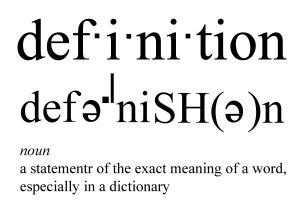Owner Benefit refers to the total financial return that a franchise owner receives from operating their business, including salary, profits, and personal financial perks. In franchising, owner benefit represents the real income and economic value that an owner derives from their franchise investment.
 In the context of franchising, owner benefit is a key measure of financial performance used to evaluate the true profitability of a franchise business. It includes the owner’s salary, business profits, and discretionary expenses paid through the business—such as health insurance, automobile costs, or other benefits that personally compensate the owner. Unlike net profit alone, owner benefit provides a more accurate picture of the franchisee’s total financial gain from operating the business.
In the context of franchising, owner benefit is a key measure of financial performance used to evaluate the true profitability of a franchise business. It includes the owner’s salary, business profits, and discretionary expenses paid through the business—such as health insurance, automobile costs, or other benefits that personally compensate the owner. Unlike net profit alone, owner benefit provides a more accurate picture of the franchisee’s total financial gain from operating the business.
Franchisors and consultants often use owner benefit to help potential franchisees assess the return on investment (ROI) of a franchise opportunity. It is commonly used in resale valuations, franchise comparisons, and business performance assessments. Because tax and accounting structures vary, owner benefit is best viewed as an individualized calculation that reflects how much an owner actually takes home after accounting for all business expenses and owner-related compensation.
Additional Definition: This is a descriptive term that describes business income minus all “true” business expenses. Any benefit a franchisee receives from the business—either through pass-through expenses, retirement contributions, dividends, distributions, or salary—is considered part of 'Owner Benefit'. Other terms include “Owners Discretionary Profit” or “Earnings Before Interest Taxes Depreciation and Amortization (EBITDA) Plus Add-Backs.”
| Component | Description |
|---|---|
| Owner’s Salary | The fixed income paid to the owner for managing or operating the franchise. |
| Net Profit | The remaining profit after all expenses, including salaries, rent, and royalties, are paid. |
| Discretionary Expenses | Business-paid personal benefits such as health insurance, vehicle use, or travel expenses. |
| Depreciation and Amortization | Non-cash expenses that can be added back to determine cash-based profitability. |
| Owner’s Draw | Additional funds the owner may withdraw from business profits as personal income. |
The term owner benefit has long been used in small business accounting and brokerage to represent the total economic return of ownership. In franchising, it gained popularity as a way to standardize performance metrics for prospective franchisees evaluating different franchise brands. Before regulatory standards like the Franchise Disclosure Document (FDD) were introduced, owner benefit figures were often the primary financial data shared during franchise sales presentations. Today, franchisors must disclose any earnings claims under Item 19 of the FDD, and these figures may include or relate to owner benefit metrics when permitted by law.
Financial advisors and lenders also use owner benefit to determine the earning potential of a franchise when assessing funding eligibility, particularly in resale situations where business valuation depends on the owner’s total financial advantage rather than net income alone.
Also See: The Educated Franchisee, 3rd Edition
| Category | Amount (USD) |
|---|---|
| Owner’s Salary | $75,000 |
| Net Profit | $40,000 |
| Discretionary Expenses | $15,000 |
| Depreciation (add-back) | $5,000 |
| Total Owner Benefit | $135,000 |
'The franchise resale listing showed an owner benefit of $120,000, making it an attractive opportunity for investors.'
'Calculating total owner benefit helps franchisees understand the real financial return from daily operations.'
'The franchisor’s Item 19 disclosure included median owner benefit figures based on mature franchise locations.'
Owner benefit is a key financial indicator that reflects the total value a franchise owner derives from their business, combining salary, profits, and personal perks. It provides a realistic measure of the franchise’s earning potential and is often used in franchise evaluations, resale valuations, and funding assessments. Understanding owner benefit helps franchisees gauge whether a franchise aligns with their financial goals and desired lifestyle.